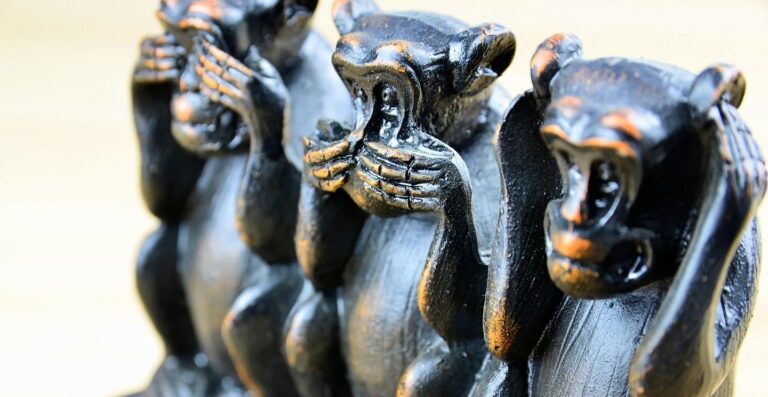History isn’t just a collection of dates and dusty battles. It’s a vibrant chronicle, a rich record woven with the triumphs and tragedies of the human experience. Three threads, as vibrant as any dye, consistently course through this chronicle: loss, love, and the yearning for meaning.
Cleopatra, the last pharaoh of a fading empire, sits in a chamber bathed in sunlight. Light filters through the alabaster windows, revealing traces of tears on her face. Beside her lies Mark Antony, her lover and co-ruler, who has taken his own life. The loss of her kingdom and the abrupt end of their love story weighs heavily on her. Cleopatra’s suicide isn’t just a minor detail in history; it’s a stark reminder of the profound grief that loss can cause.
Neuroscientists have pinpointed the physical effects of grief. Studies show a surge in cortisol, the stress hormone, which can disrupt sleep patterns and appetite. The amygdala, the brain’s emotional center, becomes hyperactive in response to loss, leading to intense sadness and despair. Cleopatra’s story exemplifies the profound impact of loss on the human psyche.
But history isn’t all about sorrow. Look closer, and you’ll find testaments to love’s enduring flame. On a rain-soaked battlefield, amidst the roar of cannons and the stench of gunpowder, Napoleon Bonaparte dips a quill in ink. By flickering candlelight, he writes to his beloved Josephine, his words filled with a tenderness that defies the chaos around him. These letters, treasured for centuries, speak to a powerful love that could bloom even on the precipice of war.
Research suggests that love triggers the release of oxytocin, a neuropeptide that promotes feelings of bonding and attachment. It lowers blood pressure and heart rate, creating a sense of calm and well-being. Napoleon’s writing to Josephine amid war reflects the power of love to provide solace and connection even in the most difficult circumstances.
Fast-forward a thousand years. Murasaki Shikibu puts pen to paper in Japan’s secluded Heian period court. Her exquisite poems chronicle a love that is both passionate and ultimately unfulfilled. Yet, the beauty and yearning in her words transcend the limitations of her personal story. They remind us that even unrequited love can be a transformative force, shaping our art and enriching the human experience.
According to psychologists, unrequited love can be a catalyst for creativity. The intense emotions associated with this love can fuel artistic expression, creating powerful works of art, literature, and music. Murasaki Shikibu’s story exemplifies the transformative power of unfulfilled desires, where pain is channeled into artistic beauty.
The yearning for meaning often intertwines with the threads of love and loss. Take the pyramids of Giza, those colossal stone giants that pierce the Egyptian sky. Built as tombs for pharaohs, they represent a belief in an afterlife, a desire to cheat death, and find something beyond the limitations of our earthly existence. Similarly, across cultures and continents, elaborate burial practices echo this universal human desire for connection with something greater than ourselves.
The human fear of death is a complex phenomenon. Evolutionary psychologists suggest it may be a survival mechanism, motivating us to protect ourselves and reproduce. However, the belief in an afterlife offers comfort and a sense of purpose in the face of our inevitable mortality. The pyramids stand as a testament to this enduring human desire.
However, the most profound way to transcend loss and find meaning lies not in grand gestures or monumental structures but in the quiet practice of love in everyday life. Imagine a world where love isn’t just a feeling but a way of being. This love, expressed through attention, appreciation, affection, and acceptance, becomes an antidote to loss and isolation.
Picture a couple, weathered by life’s storms but still fiercely devoted. They sit in comfortable silence, a steaming cup of tea warming their hands. This seemingly ordinary moment becomes extraordinary when viewed through the lens of attention. Their eyes meet, silently acknowledging the shared journey that binds them.
Think of a parent who notices their teenager’s self-conscious slouch. They compliment the new haircut instead of criticizing the slouch, fostering appreciation and building confidence.
Imagine a group of friends celebrating a birthday. Laughter fills the room as they share stories and cake. This outburst of affection and joy reminds us of the simple pleasures that make life worth living.
In these everyday acts, a powerful force is unleashed — the force of love in action. This love, practiced with mindfulness and intention, allows us to find meaning in the simple beauty of human connection. It helps us navigate life’s inevitable losses with resilience and appreciate fleeting moments. Ultimately, through the practice of love, in all its messy, glorious forms, we transcend the limitations of the self and find our place in the grand tapestry of human existence. This chronicle of loss, hope, and love is a testament to the enduring spirit of humanity.






